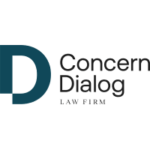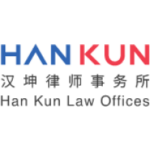-
Please briefly describe the current investment climate in the country and the average volume of foreign direct investments (by value in US dollars and by deal number) over the last three years.
Finland offers a highly attractive investment climate, with the Finnish government actively welcoming foreign investment. As a member of the European Union, the Euro area, and NATO (as of April 2023), Finland provides a stable and secure environment for investors. Its modern, well-developed economy is underpinned by world-class digital infrastructure, a skilled workforce, and a commitment to innovation. Finland consistently ranks highly in global competitiveness and sustainability, making it a premier investment destination.
The country is strategically located in Northern Europe, bordering Russia, Sweden, and Norway, and has excellent transport links to the Nordic-Baltic region. Its largest trading partners are the United States, Sweden, and Germany. Finland is recognized globally for its strengths in information and communication technology (ICT), microelectronics, renewable energy, and emerging technologies such as quantum computing and supercomputing.
The Finnish government fosters investment with competitive corporate tax rates (20%, the lowest in the Nordics) and simplified residency and permitting processes. These policies, combined with Finland’s high standard of living and transparency, create a favorable environment for foreign investors.
Foreign Direct Investment Trends:
The stock of foreign direct investments in Finland has shown consistent growth over the past three years:
2021: €75.9 billion (330 new FDIs)
2022: €78.3 billion (300 new FDIs)
2023: €81.6 billion (247 new FDIs)
The software, business consulting, and renewable energy sectors are among the most attractive industries for foreign investment. Finland ranked 16th in Europe for FDI in 2023, with the software sector and business services leading inflows.
Sustainability-focused industries, ICT, and high-tech startups continue to flourish, supported by initiatives such as the globally recognized Slush event. Finland’s commitment to carbon neutrality by 2035 has spurred growth in renewable energy and green technologies. Additionally, NATO membership is expected to bolster the defense industry and related investments, further enhancing the country’s economic stability.
-
What are the typical forms of Foreign Direct Investments (FDI) in the country: a) greenfield or brownfield projects to build new facilities by foreign companies, b) acquisition of businesses (in asset or stock transactions), c) acquisition of minority interests in existing companies, d) joint ventures, e) other?
Foreign Direct Investment (FDI) in Finland primarily takes the form of mergers and acquisitions (M&A), consistently dominating foreign investment activity over the past decade. Greenfield investments, which involve establishing entirely new operations, have fluctuated over the years but typically account for 25–40% of annual FDI deals.
FDI in Finland is concentrated in several key industries. These include financial and insurance services, technology services, information and communications technology, and business services.
-
Are foreign investors allowed to own 100% of a domestic company or business? If not, what is the maximum percentage that a foreign investor can own?
Yes, foreign investors are generally allowed to own 100% of a domestic company or business in Finland.
-
Are foreign investors allowed to invest and hold the same class of stock or other equity securities as domestic shareholders? Is it true for both public and private companies?
Foreign investors are allowed to invest in and hold the same class of stock or other equity securities as domestic shareholders in Finland. This applies to both public and private companies.
-
Are domestic businesses organized and managed through domestic companies or primarily offshore companies?
In Finland, domestic businesses are predominantly organized and managed through domestic companies. While the specific structure may vary depending on legal and tax considerations, Finnish businesses typically incorporate and operate through Finnish entities. The most common legal form for commercial enterprises is the limited liability company (Finnish: osakeyhtiö).
Similarly, foreign businesses operating in Finland overwhelmingly choose to establish locally incorporated enterprises rather than operate through foreign branches. Nearly 80% of foreign business operations are conducted via companies incorporated in Finland, with the remaining 20% operating through branches of foreign companies. This highlights a strong preference for local incorporation among both domestic and foreign entities, as it facilitates compliance with Finnish laws and integration into the local market.
It is worth noting, however, that Finnish companies can be managed and represented towards third parties by foreign individuals or entities. As a result, while most businesses in Finland are incorporated domestically, it is not always possible to determine the extent to which foreign individuals or entities directly manage these businesses.
-
What are the forms of domestic companies? Briefly describe the differences. Which form is preferred by domestic shareholders? Which form is preferred by foreign investors/shareholders? What are the reasons for foreign shareholders preferring one form over the other?
In Finland, the most common business structures are limited liability companies (Finnish: osakeyhtiö, Oy) and private traders (Finnish: toiminimi), which together make up over three-quarters of all businesses.
Limited liability companies are primarily used for private enterprises, with shareholders’ liability limited to their investment, while public limited liability companies (Finnish: julkinen osakeyhtiö, Oyj) are designed for businesses listed on the stock exchange or seeking to raise public funds.
Private traders are individual entrepreneurs who operate as sole proprietors, with full personal liability for the business’s obligations. This form is straightforward to establish and is often chosen by small businesses or freelancers.
Partnerships (Finnish: avoin yhtiö, Ay) and limited partnerships (Finnish: kommandiittiyhtiö, Ky) cater to smaller businesses or specific collaborative arrangements. In addition, limited partnerships are commonly used in fund structures due to their flexibility in separating management responsibilities and financial risk between general and limited partners, while also offering tax efficiency. Partnerships involve two or more individuals sharing management, profits, and losses, while limited partnerships include both general partners, who manage the business with unlimited liability, and limited partners, whose liability is restricted to their investment.
A cooperative (Finnish: osuuskunta) is a business structure where the members collectively own the organization and exercise decision-making power democratically, often used by people in similar industries who come together for shared goals, like farmers or small producers. Cooperatives work best for groups of individuals or businesses that want to pool resources for common economic goals. Common examples of cooperatives in Finland include retail cooperatives and cooperative banks.
Some foreign investors conduct business in Finland through a branch (Finnish: sivuliike). A branch is not a separate company nor incorporated in Finland but acts as an extension of its foreign parent entity, conducting business in Finland on behalf of and in the name of the parent company. The foreign parent retains full liability for the branch’s operations, including debts and obligations arising from its activities in Finland. Branches are subject to Finnish laws and regulations, and establishing one involves registering with the Finnish Trade Register. This structure allows foreign companies to enter the Finnish market without setting up a fully separate legal entity.
Which form is preferred by domestic shareholders? Which form is preferred by foreign investors/shareholders?
Domestic shareholders in Finland overwhelmingly prefer limited liability companies. This structure offers flexibility, limited liability, and is well-suited for businesses of all sizes, from small enterprises to larger private firms. It provides a clear division between personal and business assets, which is particularly attractive for Finnish entrepreneurs.
Additionally, a significant portion of businesses in Finland operate as private traders. While private traders do not have “shareholders” in the traditional sense, this form is widely chosen due to its simplicity, low administrative burden, and suitability for small-scale or sole-proprietor operations.
Foreign investors often prefer operating in Finland through either a limited liability company or a branch of their foreign entity. Both structures are commonly chosen depending on the investor’s goals and operational needs.
What are the reasons for foreign shareholders preferring one form over the other?
A limited liability company is the most popular choice for foreign investors looking to establish a permanent presence in Finland. It provides limited liability, flexibility, and the ability to raise capital, making it ideal for long-term investments.
A branch is often preferred by foreign investors seeking a simpler entry into the Finnish market without incorporating a new legal entity. It allows the parent company to operate in Finland under its name while adhering to Finnish regulations. This structure is particularly advantageous for short-term operations or when testing the market.
-
What are the requirements for forming a company? Which governmental entities have to give approvals? What is the process for forming/incorporating a domestic company? What is a required capitalization for forming/incorporating a company? How long does it take to form a domestic company? How many shareholders is the company required to have? Is the list of shareholders publicly available?
Which governmental entities have to give approvals?
In Finland, forming a company does not generally require prior approvals from governmental authorities, though registration is mandatory. The Finnish Patent and Registration Office (PRH) is the key authority overseeing company registration.
However, if a limited liability company has individuals residing outside of the European Economic Area (EEA) in managerial positions or other positions of responsibility, a permit may need to be obtained. This requirement does not affect the ownership of shares, as there are no restrictions based on citizenship, place of residence, or registered office for shareholders. The permit requirement applies exclusively to individuals holding managerial or other positions of responsibility within the company.
To avoid the need for a permit, at least one ordinary member of the Board of Directors and one deputy member must have a permanent place of residence within the EEA. Citizenship is not a determining factor, only residency matters. It is important to note that the residency requirement is assessed separately for ordinary members and deputy members. If no members of the Board, whether ordinary or deputy, reside in the EEA, a permit must be obtained for each member from the PRH. Permits have commonly been granted to individuals residing in countries like Switzerland and the United States under specific treaties or conventions.
Similarly, the managing director and their deputy, if any, must reside in the EEA. If this condition is not met, a permit must be secured.
If a foreign company chooses to establish a branch in Finland instead of incorporating a local company (see above section 6 on different forms of companies), a permit must be applied for. The PRH generally grants such permits if the parent organization is properly registered in its home country.
Depending on the company’s size and operations, it may also need to register with the Finnish Tax Administration for value-added tax (VAT), employer obligations, and prepayment of taxes. Additionally, certain industries, such as finance, healthcare, and alcohol sales, may require specific licenses from relevant regulatory authorities.
What is the process for forming/incorporating a domestic company?
The process for forming a business in Finland is straightforward and follows clear steps. Below are outlined the key requirements included with incorporating an LLC:
1. Draft Incorporation Documentation
Prepare the Memorandum of Association and Articles of Association, which outline the company’s structure and rules. For simplicity, the Finnish Trade Register (PRH) provides document templates for both. These can be used if only standard documentation is required without additional customization.
2. Open a Bank Account
Bring the original Memorandum of Association to a Finnish bank to open a company bank account.
3. Pay Share Capital (if any)
Deposit the share capital into the company’s bank account before proceeding with registration.
4. Obtain Board and Auditor Statements
The Board of Directors (BoD) must sign a statement verifying the share payments. Additionally, the BoD must confirm compliance with the Limited Liability Companies Act, and the auditor (if applicable) must verify the share capital deposit.
5.Submit the Start-Up Notification
File the start-up notification with the PRH within three months of signing the Memorandum of Association. Registration can be done either in paper form or through online access in the Business Information System.
Once these steps are completed, the company is officially registered.
What is a required capitalization for forming/incorporating a company?
There is no minimum share capital requirement for private limited liability companies (Oy) since such requirement was abolished in 2019. Public limited liability companies (Oyj), however, require a minimum share capital of €80,000.
How long does it take to form a domestic company?
The time required to form a company in Finland depends on completing several steps. Drafting the necessary documentation for incorporation typically takes a day or so, assuming all relevant information is readily available. Opening a bank account for the company can take anywhere from a few days to a week, depending on the bank’s processes.
Once these initial steps are completed, the registration process with the Finnish Patent and Registration Office begins. If the Start-up Notification is filed electronically, the registration typically takes around one week. However, if the notification is submitted in paper form, the process may take up to 2.5 months. However, these timelines may vary based on the workload of the Trade Register, particularly during periods of high demand. A business-ID is however received already immediately after filing.
How many shareholders is the company required to have?
A Limited Liability Company (Oy) requires at least one shareholder, who may be a natural person or a legal entity. Shareholders can be Finnish or foreign, as Finland places no restrictions on foreign ownership.
Is the list of shareholders publicly available?
Private limited liability companies in Finland must maintain a shareholder register, recording any share acquisitions without delay. This register must be publicly accessible at the company’s head office (or sent electronically upon request) but is not filed with the Finnish Trade Register (PRH) and is not readily available online.
In contrast, most companies must file details of beneficial owners—those owning more than 25% of shares or voting rights, directly or indirectly—with the PRH and keep them updated. These details are not public but are provided by the PRH to parties in accordance with the Act on Money Laundering.
-
What are the requirements and necessary governmental approvals for a foreign investor acquiring shares in a private company? What about for an acquisition of assets?
In Finland, acquiring shares in a private company is generally straightforward for foreign investors, as there are no restrictions based on citizenship, domicile, or the place of residence or registered office of the investor. As a rule, acquiring shares in a private company does not require governmental approval.
However, there are certain exceptions that apply in industries considered important to Finland’s national security. Under the Act on the Screening of Foreign Corporate Acquisitions (172/2012), foreign investors must seek approval from the Ministry of Economic Affairs and Employment if the acquisition involves a company operating in certain critical fields (see section 19 below).
For acquisitions of assets, the general principle is similar—governmental approvals are not required in most cases. However, if the assets being acquired are part of a business operating in sensitive sectors, such as defense-related activities or critical infrastructure, the transaction may be subject to review under the Act on the Screening of Foreign Corporate Acquisitions.
When it comes to real estate transactions, foreign investors from outside the European Economic Area (EEA) must obtain permission from the Ministry of Defense. This requirement also applies to EEA-based entities if they are controlled by a non-EEA entity or individual. It is important to note that this rule applies only to direct purchases of real estate by foreign investors. It does not apply in cases where real estate is indirectly transferred as part of an acquisition of a company that owns the property.
-
Does a foreign investor need approval to acquire shares in a public company on a domestic stock market? What about acquiring shares of a public company in a direct (private) transaction from another shareholder?
In general, foreign investors do not need approval to acquire shares in a public company listed on a Finnish stock market or in a direct (private) transaction from another shareholder.
However, Finland’s Foreign Direct Investment (FDI) screening regime may apply if the target company is considered an entity subject to screening and certain thresholds are met (see section 19 below). In this sense, Finland’s FDI screening regime differs from that of certain other jurisdictions because it can apply also to portfolio investments, such as the acquisition of shares on a public stock exchange.
-
Is there a requirement for a mandatory tender offer if an investor acquired a certain percentage of shares of a public company?
Yes, an investor who acquires voting rights exceeding 30% or 50% of the total votes in a public company is obligated to make a public tender offer for all remaining shares and securities entitling to shares in the company. This rule applies once the company’s shares are admitted to trading on a regulated market.
The tender offer must meet strict regulatory conditions, including offering a price at least equal to the highest price the acquiring party has paid for shares in the target company during the preceding six months.
Historically, Finland’s threshold for mandatory tender offers was set at two-thirds of voting rights, but this was revised to the current dual thresholds to align with European Union directives and address concerns specific to the Finnish market. The dual thresholds balance the need for effective minority protection with the operational flexibility required by majority shareholders to manage and invest in the company.
-
What is the approval process for building a new facility in the country (in a greenfield or brownfield project)?
For industrial-scale projects, including greenfield and brownfield projects, compliance with the existing land use plan and obtaining the appropriate building permit are typically required. Additional permits may also be necessary depending on the project’s size, environmental impacts, location, and site-specific characteristics. These requirements are generally identified early in the process and will proceed in parallel with the approval of the land use plan and the building permit.
Below is an overview of the key steps in the approval process for building a new facility:
(a) Planning Status of the Selected Site
The project’s compliance with the existing land use plan is evaluated in the early phase. Typically, changes in the current land use plan are required.
The competent municipality is responsible for planning and changes in the land use plan are prepared in close cooperation with the municipality.
In certain cases, an exemption to the land use plan may be granted, provided the proposed construction does not conflict with the land use or cause significant environmental or other negative impacts.
(b) Environmental Consideration
If the project is considered to have significant environmental impacts, additional permits or assessments may be required, typically including an environmental permit or Environmental Impact Assessment (EIA).
These permits and assessments usually overlap and are therefore often processed alongside.
(c) Building Permit
A building permit is based on land use planning and applied from the municipal building supervision authority. To streamline the permit process, the building supervision authority is usually contacted once the planning process begins.
(d) Supervision of Construction and Completion
Construction supervision begins when construction is commenced and ends with the final inspection. It focuses on key construction phases deemed critical by the authority to ensure compliance and quality outcomes.
-
Can an investor do a transaction in the country in any currency or only in domestic currency? a) Is there an approval requirement (e.g. through Central Bank or another governmental agency) to use foreign currency in the country to pay: i. in an acquisition, or, ii. to pay to contractors, or, iii. to pay salaries of employees? b) Is there a limit on the amount of foreign currency in any transaction or series of related transactions? i. Is there an approval requirement and a limit on how much foreign currency a foreign investor can transfer into the country? ii. Is there an approval requirement and a limit on how much domestic currency a foreign investor can buy in the country? iii. Can an investor buy domestic currency outside of the country and transfer it into the country to pay for an acquisition or to third parties for goods or services or to pay salaries of employees?
In Finland, the official currency is the euro, and most transactions are conducted in euros. However, there are no legal restrictions on the use of foreign currencies in transactions. Parties are free to agree to use foreign currencies, such as the US dollar, in their dealings, including acquisitions, as contractual freedom extends to all types of transactions.
Foreign exchange controls in Finland have been abolished. Beyond regulations addressing money laundering, there are virtually no legal barriers to direct foreign investment in Finnish securities or restrictions on payments into and out of the country. There are no limitations on currency transfers or the repatriation of profits. Both residents and non-residents may hold foreign exchange accounts, but payments to or from Finland must be processed through authorized banks in the country.
Is there an approval requirement (e.g. through Central Bank or another governmental agency) to use foreign currency in the country to pay:
- in an acquisition, or
There are no restrictions or approval requirements for using foreign currency to pay for an acquisition if both parties agree to it.
- to pay to contractors, or
Payments to contractors in foreign currency are permissible without any need for central bank or any other governmental agency approval if agreed upon by the parties.
- to pay salaries of employees?
Salaries can be paid in foreign currency on mutual agreement between the employer and employee. Again, no approval from the central bank or any other governmental agency is required.
Is there a limit on the amount of foreign currency in any transaction or series of related transactions?
There are no specific limits on the amount of foreign currency that can be used in any single transaction or series of transactions.
Is there an approval requirement and a limit on how much foreign currency a foreign investor can transfer into the country?
Foreign investors are free to transfer any amount of foreign currency into Finland without requiring approval or facing restrictions. However, if entering Finland from outside the EU and carrying cash of €10,000 or more, a cash declaration must be submitted to Finnish Customs upon arrival. This requirement does not apply when arriving from another EU country, even with cash amounts exceeding €10,000. Moreover, banks and financial institutions may oversee significant monetary transfers into the country to ensure compliance with anti-money laundering (AML) regulations.
Is there an approval requirement and a limit on how much domestic currency a foreign investor can buy in the country?
There are no approval requirements or limits on how much domestic currency (euros) a foreign investor can purchase within Finland. However, banks and financial institutions may monitor large transactions to ensure compliance with anti-money laundering (AML) regulations.
Can an investor buy domestic currency outside of the country and transfer it into the country to pay for an acquisition or to third parties for goods or services or to pay salaries of employees?
An investor can purchase euros outside Finland and transfer them into the country for any purpose, including acquisitions, paying third parties for goods or services, or paying employee salaries. However, the same cash declaration requirements apply when entering Finland with €10,000 or more in cash.
-
Are there approval requirements for a foreign investor for transferring domestic currency or foreign currency out of the country? Whose approval is required? How long does it take to get the approval? Are there limitations on the amount of foreign or domestic currency that can be transferred out of the country? Is the approval required for each transfer or can it be granted for all future transfers?
There are no foreign exchange controls in Finland, and no approval is required for foreign investors to transfer domestic or foreign currency out of the country. There are no restrictions on the amount of currency that can be transferred or on the repatriation of profits. Payments and transfers are processed freely, provided they comply with anti-money laundering regulations and are conducted through authorized banks.
-
Is there a tax or duty on foreign currency conversion?
There is no specific tax or duty imposed on foreign currency conversions in Finland. However, related financial activities, such as capital gains from foreign exchange trading or financial instruments, may be subject to capital gains tax under Finnish legislation.
-
Is there a tax or duty on bringing foreign or domestic currency into the country?
There is no tax or duty on bringing foreign or domestic currency into Finland.
However, individuals entering or leaving Finland from/to a non-EU country must declare cash amounts exceeding EUR 10,000 or its equivalent in other currencies to comply with anti-money laundering regulations. Additionally, exporting banknotes of official EU Member State currencies to Russia is prohibited.
-
Is there a difference in tax treatment between acquisition of assets or shares (e.g. a stamp duty)?
Acquisition of assets or shares is generally subject to transfer tax in Finland:
- Shares and securities: 1.5% of the purchase price.
- Real estate and buildings: 3.0% of the purchase price.
- Other assets: Transfer tax does not apply to assets other than real estate.
Shares and securities traded on the stock exchange are, however, exempt from transfer tax.
Further, the acquisition of shares is exempt from Value Added Tax (VAT). Additionally, the sale of a well-defined business unit, often referred to as a “transfer of a going concern,” is VAT-exempt if the assets form an entity capable of operating autonomously. Specific conditions must be met to qualify for these exemptions.
Real estate is further subject to annual real estate tax which is paid by the owner of the real estate unit.
-
When is a stamp duty required to be paid?
Stamp duty was abolished in Finland in 2001 and replaced by a transfer tax. Transfer tax applies when purchasing real estate, shares in a housing company, or other securities or corporate stocks. However, shares and other securities traded on the stock exchange, as well as shares purchased in a limited liability company’s stock issue, are exempt from the transfer tax. Additional exemptions may also apply in specific circumstances.
The buyer is responsible for self-assessing, reporting, and paying the transfer tax by filing a transfer tax return.
Shares and securities traded on the stock exchange, as well as shares purchased in a limited liability company’s stock offering, are exempt from the transfer tax. Additional exemptions may apply in specific circumstances.
Filing and payment deadlines:
- Housing company shares and other securities: Within two months of signing the sales contract or agreement. For new-build properties, the deadline is two months from the transfer of ownership.
- Real estate: The transfer tax must be paid, and the return filed before applying for the registration of title or rights, which must be completed within six months of signing the sales contract.
- Buildings or structures (without land): Filing and payment must be completed within six months of signing the sales contract.
-
Are shares in private domestic companies easily transferable? Can the shares be held outside of the home jurisdiction? What approval does a foreign investor need to transfer shares to another foreign or domestic shareholder? Are changes in shareholding publicly reported or publicly available?
Yes, shares in private domestic companies in Finland are generally easy to transfer, as the law does not impose any particularly complex or burdensome requirements. However, the practical ease of transfer may depend on the company’s articles of association or shareholder agreements, which can include restrictions such as pre-emption rights or approval requirements for share transfers. Internal company rules, such as those in the articles of association or shareholder agreements, may require approval from other shareholders or the board of directors of the company.
Can the shares be held outside of the home jurisdiction?
Yes, shares in Finnish private companies can be held by foreign investors and stored in accounts outside Finland. There are no legal restrictions on holding shares outside the home jurisdiction.
What approval does a foreign investor need to transfer shares to another foreign or domestic shareholder?
No governmental or regulatory approval is typically required for share transfers, except for cases involving companies in the defense sector or those providing critical products or services essential to societal security (see section 19 below). However, internal company rules, such as those in the articles of association or shareholder agreements, may require approval from other shareholders or grant existing shareholders the right of pre-emption to purchase shares before they are sold to third parties.
Are changes in shareholding publicly reported or publicly available?
Shareholder information is not registered in the Trade Register, and changes in shareholders do not require a notification of amendment. However, changes in shareholding often result in changes to the board of directors or the CEO, which do require a notification of amendment. Private limited liability companies are themselves required to maintain a shareholder register, and any share acquisitions must be entered into this register without delay. The shareholder register must be publicly accessible at the company’s head office (or sent electronically at request), allowing anyone to view it. The shareholder register is not, however, registered with the Finnish Trade Register (PRH) and is not readily available to the public, such as through online access.
In contrast, most companies, including limited liability companies, are required to file details of their beneficial owners (persons with ownership interest or control over the company) with the PRH and keep these details up to date. A beneficial owner is defined as a person who owns more than 25% of the company’s shares or holds more than 25% of its voting rights, either directly or indirectly through another company.
However, the details of beneficial ownership are not publicly accessible in the same way as other company details that are registered with the Trade Register. The PRH provides these details only to parties using them in accordance with the Act on Money Laundering.
-
Is there a mandatory FDI filing? With which agency is it required to be made? How long does it take to obtain an FDI approval? Under what circumstances is the mandatory FDI filing required to be made? If a mandatory filing is not required, can a transaction be reviewed by a governmental authority and be blocked? If a transaction is outside of the home jurisdiction (e.g. a global transaction where shares of a foreign incorporated parent company are being bought by another foreign company, but the parent company that’s been acquired has a subsidiary in your jurisdiction), could such a transaction trigger a mandatory FDI filing in your jurisdiction? Can a governmental authority in such a transaction prohibit the indirect transfer of control of the subsidiary?
Yes, but only for acquisitions involving companies in the defense sector or those providing critical products or services essential to societal security.
With which agency is it required to be made?
FDI filings (both mandatory applications for advance approval as well as voluntary notifications) are made with the Ministry of Economic Affairs and Employment.
How long does it take to obtain an FDI approval?
The processing time depends on the complexity and scope of the case. All filings are always processed as urgent matters by the Ministry.
For acquisitions not in the defense or security sectors, the Ministry must initiate further investigations within six weeks and decide on whether to transfer the matter for further processing within three months. All deadlines related to filings begin, however, only once the ministry deems that all the necessary information for processing has been received from the applicant.
In 2023, the average processing time was approximately 65 days.
Under what circumstances is the mandatory FDI filing required to be made?
In Finland, advance confirmation must be applied for when a corporate acquisition results in a foreign owner gaining control or influence above a certain threshold in a company that is an entity subject to screening in the defense industry or security sector. Corporate acquisitions refer to acquisitions or other corresponding measures where a foreign owner gains at least one-tenth, one-third, or half of the total number of votes conferred by all shares in the company or corresponding actual influence.
In this context, a foreign owner is defined as:
- A foreign national not domiciled in an EU or EFTA member state;
- An organization or foundation not domiciled within the EU or EFTA member states; and
- An organization or foundation domiciled within the EU or EFTA but in which a foreign national, organization, or foundation (not domiciled in the EU or EFTA Member States) controls at least one-tenth of the aggregate number of votes conferred by all shares or exercises corresponding actual influence.
Entities subject to screening include:
- Defense Industry Enterprises: Organizations or businesses that produce or supply defense materiel or other critical products or services essential for military national defense;
- A defense industry enterprise refers to a company that produces or supplies defense materiel as defined in the Act on the Export of Defense Materiel (282/2012) or other products or services critical to military national defense. These may include, for example, essential products or services provided to the Ministry of Defense, the Finnish Defense Forces, or the Finnish Border Guard. The significance of these products or services is evaluated on a case-by-case basis, often based on existing commitments with the Finnish Defense Forces. Examples of such critical products and services include key software applications, cybersecurity solutions, cloud services, or similar products and services. Additionally, maintaining or supporting critical infrastructure or providing essential equipment to the Defense Forces can be deemed critical for national security. Infrastructure related to military defense, such as supporting the readiness construction of the Defense Forces or ensuring fuel supply to the Defense Forces, may also be included. Companies producing dual-use goods, as defined under the Act on the Control of Exports of Dual-Use Items (562/1996), are also considered defense industry enterprises.
- Security Sector Companies: Companies that produce or supply products or services critical to the statutory duties of Finnish authorities essential for the security of society; and
- A security sector company refers to a company that produces or supplies critical products or services related to the statutory duties of Finnish authorities essential for the security of society. These security authorities include, among others, the Finnish Defense Forces, the Border Guard, the police, customs, the National Emergency Supply Agency, the Finnish National Security Authority (NSA), and the Finnish Transport and Communications Agency (Traficom). Critical products or services provided to these key Finnish security authorities include, for example, software applications (including encryption software), cybersecurity solutions, certificate services, cloud services, data center services, and other products and services related to their maintenance.
- Other Critical Entities: Organizations or businesses considered critical for securing functions vital to society, based on their field, business, or commitments.
Foreign owners must apply for advance confirmation from the Ministry for any acquisition involving defense industry companies or security sector companies. The application must include all necessary information about the entity subject to screening, the foreign owner, and the details of the acquisition. For other acquisitions, i.e., other critical entities, foreign owners may submit a notification to the Ministry for confirmation. This notification is not mandatory.
If a mandatory filing is not required, can a transaction be reviewed by a governmental authority and be blocked?
As mentioned above, acquisitions involving other critical entities (i.e., entities subject to screening other than defense industry enterprises or security sector companies) may be notified to the Ministry of Economic Affairs and Employment. If no notification is filed, the Ministry has the right to require the foreign owner to provide information about the acquisition. Moreover, for a specific reason, the Ministry may also oblige the foreign owner to file an application or notification concerning a corporate acquisition, even if the thresholds outlined above are not exceeded.
Although filing for these acquisitions is not strictly mandatory, the Government retains the authority to refuse to confirm a corporate acquisition if this is necessary to safeguard a key national interest. Alternatively, the Ministry may impose conditions on the acquisition to ensure the protection of such interests.
If a transaction is outside of the home jurisdiction (e.g. a global transaction where shares of a foreign incorporated parent company are being bought by another foreign company, but the parent company that’s been acquired has a subsidiary in your jurisdiction, could such a transaction trigger a mandatory FDI filing in your jurisdiction?
Can a governmental authority in such a transaction prohibit the indirect transfer of control of the subsidiary?
Yes, the Finnish FDI Screening Regime also applies to situations where a Finnish subsidiary is indirectly acquired through the acquisition of its foreign parent company. If the Finnish subsidiary qualifies as an entity subject to screening (see above) and the relevant thresholds are met (at least 1/10, 1/3 or half of the total number of votes conferred by all shares in the company) a mandatory filing obligation may be triggered.
The governmental authority in Finland, under this regime, has the power to review and potentially prohibit such indirect transfers of control if it determines that this is imperative to safeguard a key national interest.
-
What are typical exit transactions for foreign companies?
Several options exist for foreign companies looking to exit their investments in Finland. The most common approaches include:
- Asset Sale:
Selling the company’s assets, such as real estate, equipment, or intellectual property, to a third party. This option is often chosen when the business operations are ceasing, but the assets retain value.
- Share Sale:
Selling the ownership shares of the company to another business, a local buyer, or an investor. This is a typical strategy for foreign investors aiming to exit while ensuring the continuity of the business.
- Dissolution by liquidation:
Dissolution of a company by liquidation in accordance with the Limited Liability Companies Act and selling off assets to settle liabilities, with any remaining funds distributed to shareholders. This is typically pursued when no suitable buyer can be found or when the business is no longer viable.
- Initial Public Offering (IPO):
For larger companies, listing shares on a stock exchange and exiting through an IPO can be an option. While less common, this strategy can provide significant returns if the business has strong growth potential.
-
Do private companies prefer to pursue an IPO? i. on a domestic stock market, or ii. on a foreign stock market? iii. If foreign, which one?
In Finland, private companies often prefer to pursue an IPO on the domestic stock market, Nasdaq Helsinki (Main Market or First North). This choice is influenced by the relatively small size of Finnish companies on an international scale, making the domestic market a natural fit. Listing domestically allows these companies to operate within a familiar regulatory and business environment, providing benefits such as enhanced media visibility, comprehensive analyst coverage, and lower costs compared to foreign exchanges.
However, a growing trend sees an increasing number of Finnish companies opting to go public abroad (e.g., in Nasdaq Stockholm). This is particularly true for companies with substantial business operations outside Finland or those in industries with a significant number of peer companies listed on foreign stock markets. Listing abroad can provide access to a larger pool of potential investors and align the company with industry benchmarks.
Additionally, dual listings in other Nordic markets or globally recognized exchanges, such as the New York Stock Exchange or the Paris Stock Exchange, are common for Finnish companies seeking to expand their investor base. A notable example is Nokia, which is listed on the New York Stock Exchange alongside Nasdaq Helsinki.
-
Do M&A/Investment/JV agreements typically provide for dispute resolution in domestic courts or through international arbitration?
In Finland, arbitration is frequently used to settle business disputes, including those arising from M&A, investment, and JV agreements. Finland is a signatory to several key multilateral treaties related to arbitration, such as the New York Convention, the Geneva Convention, and the Washington Convention, underscoring its commitment to international arbitration standards.
Finnish courts are considered arbitration-friendly. A valid arbitration agreement excludes the jurisdiction of the courts. If such an agreement is invoked by a party before the case is heard on its merits, Finnish courts must enforce the arbitration agreement and dismiss the action.
The Arbitration Institute of the Finland Chamber of Commerce (FAI) is the leading arbitration institution in Finland, and its rules are widely used in Finnish commercial contracts. While choosing to have the seat of arbitration in Finland under Finnish contracts is most common, it is not unusual for contracts (at least when one of the contracting parties is foreign) to specify arbitration in other locations, such as Stockholm, which was historically a popular choice. However, arbitration within Finland has become the prevailing practice.
-
How long does a typical contract dispute case take in domestic courts for a final resolution?
In Finland, the duration of a typical contract dispute in domestic courts varies based on the case’s complexity and the court’s caseload. Generally, proceedings in the District Court can take between 12 to 18 months from the initiation of the lawsuit to the issuance of a judgment. If the case is appealed to the Court of Appeal or the Supreme Court, the total duration can extend to several years.
-
Are domestic courts reliable in enforcing foreign investors rights under agreements and under the law?
Yes, Finnish domestic courts are considered reliable in enforcing foreign investors’ rights under agreements and the law. Finland has a strong rule of law, an independent judiciary, and a transparent legal system, which collectively ensure fair treatment for both domestic and foreign parties.
-
Are there instances of abuse of foreign investors? How are cases of investor abuse handled?
Abuse of foreign investors in Finland is virtually unheard of, thanks to the country’s transparent legal framework, robust rule of law, and strong protection of property rights. Finland consistently ranks among the least corrupt and most business-friendly countries globally, ensuring that both domestic and foreign investors are treated fairly and equally. Foreign investors in Finland can operate with confidence, knowing their investments and rights are safeguarded.
-
Are international arbitral awards recognized and enforced in your country?
Yes, international arbitral awards are recognized and enforced in Finland. The country has a robust legal framework aligned with international standards, making it a reliable jurisdiction for arbitration. Finland is a signatory to the 1958 New York Convention on the Recognition and Enforcement of Foreign Arbitral Awards, which obliges member states to recognize and enforce arbitral awards made in other signatory countries, subject to limited exceptions.
Finnish courts are arbitration-friendly and respect the principle of party autonomy. A valid arbitration agreement excludes the jurisdiction of Finnish courts over the subject matter of the dispute. If a party invokes such an agreement before the court addresses the merits of the case, Finnish courts are required to enforce the arbitration agreement and dismiss the claim.
-
Are there foreign investment protection treaties in place between your country and major other countries?
Yes, Finland has a robust framework for foreign investment protection through over 50 bilateral investment treaties (BITs) currently in force. These agreements include treaties with major economies such as China and Brazil, among others.
Additionally, as a member of the European Union, Finland benefits from the EU’s comprehensive network of treaties that include investment provisions. These agreements cover key regions and partners, such as the UK, ASEAN, China, the Gulf Cooperation Council, India, Türkiye, Russia, and Mercosur.
It is worth noting that the negotiation of trade agreements, including investment-related treaties, largely falls under the purview of the EU. This ensures that Finland’s foreign investment framework aligns with broader EU trade and investment policies, providing a consistent and stable environment for investors.
Finland: Investing In
This country-specific Q&A provides an overview of Investing In laws and regulations applicable in Finland.
-
Please briefly describe the current investment climate in the country and the average volume of foreign direct investments (by value in US dollars and by deal number) over the last three years.
-
What are the typical forms of Foreign Direct Investments (FDI) in the country: a) greenfield or brownfield projects to build new facilities by foreign companies, b) acquisition of businesses (in asset or stock transactions), c) acquisition of minority interests in existing companies, d) joint ventures, e) other?
-
Are foreign investors allowed to own 100% of a domestic company or business? If not, what is the maximum percentage that a foreign investor can own?
-
Are foreign investors allowed to invest and hold the same class of stock or other equity securities as domestic shareholders? Is it true for both public and private companies?
-
Are domestic businesses organized and managed through domestic companies or primarily offshore companies?
-
What are the forms of domestic companies? Briefly describe the differences. Which form is preferred by domestic shareholders? Which form is preferred by foreign investors/shareholders? What are the reasons for foreign shareholders preferring one form over the other?
-
What are the requirements for forming a company? Which governmental entities have to give approvals? What is the process for forming/incorporating a domestic company? What is a required capitalization for forming/incorporating a company? How long does it take to form a domestic company? How many shareholders is the company required to have? Is the list of shareholders publicly available?
-
What are the requirements and necessary governmental approvals for a foreign investor acquiring shares in a private company? What about for an acquisition of assets?
-
Does a foreign investor need approval to acquire shares in a public company on a domestic stock market? What about acquiring shares of a public company in a direct (private) transaction from another shareholder?
-
Is there a requirement for a mandatory tender offer if an investor acquired a certain percentage of shares of a public company?
-
What is the approval process for building a new facility in the country (in a greenfield or brownfield project)?
-
Can an investor do a transaction in the country in any currency or only in domestic currency? a) Is there an approval requirement (e.g. through Central Bank or another governmental agency) to use foreign currency in the country to pay: i. in an acquisition, or, ii. to pay to contractors, or, iii. to pay salaries of employees? b) Is there a limit on the amount of foreign currency in any transaction or series of related transactions? i. Is there an approval requirement and a limit on how much foreign currency a foreign investor can transfer into the country? ii. Is there an approval requirement and a limit on how much domestic currency a foreign investor can buy in the country? iii. Can an investor buy domestic currency outside of the country and transfer it into the country to pay for an acquisition or to third parties for goods or services or to pay salaries of employees?
-
Are there approval requirements for a foreign investor for transferring domestic currency or foreign currency out of the country? Whose approval is required? How long does it take to get the approval? Are there limitations on the amount of foreign or domestic currency that can be transferred out of the country? Is the approval required for each transfer or can it be granted for all future transfers?
-
Is there a tax or duty on foreign currency conversion?
-
Is there a tax or duty on bringing foreign or domestic currency into the country?
-
Is there a difference in tax treatment between acquisition of assets or shares (e.g. a stamp duty)?
-
When is a stamp duty required to be paid?
-
Are shares in private domestic companies easily transferable? Can the shares be held outside of the home jurisdiction? What approval does a foreign investor need to transfer shares to another foreign or domestic shareholder? Are changes in shareholding publicly reported or publicly available?
-
Is there a mandatory FDI filing? With which agency is it required to be made? How long does it take to obtain an FDI approval? Under what circumstances is the mandatory FDI filing required to be made? If a mandatory filing is not required, can a transaction be reviewed by a governmental authority and be blocked? If a transaction is outside of the home jurisdiction (e.g. a global transaction where shares of a foreign incorporated parent company are being bought by another foreign company, but the parent company that’s been acquired has a subsidiary in your jurisdiction), could such a transaction trigger a mandatory FDI filing in your jurisdiction? Can a governmental authority in such a transaction prohibit the indirect transfer of control of the subsidiary?
-
What are typical exit transactions for foreign companies?
-
Do private companies prefer to pursue an IPO? i. on a domestic stock market, or ii. on a foreign stock market? iii. If foreign, which one?
-
Do M&A/Investment/JV agreements typically provide for dispute resolution in domestic courts or through international arbitration?
-
How long does a typical contract dispute case take in domestic courts for a final resolution?
-
Are domestic courts reliable in enforcing foreign investors rights under agreements and under the law?
-
Are there instances of abuse of foreign investors? How are cases of investor abuse handled?
-
Are international arbitral awards recognized and enforced in your country?
-
Are there foreign investment protection treaties in place between your country and major other countries?




























